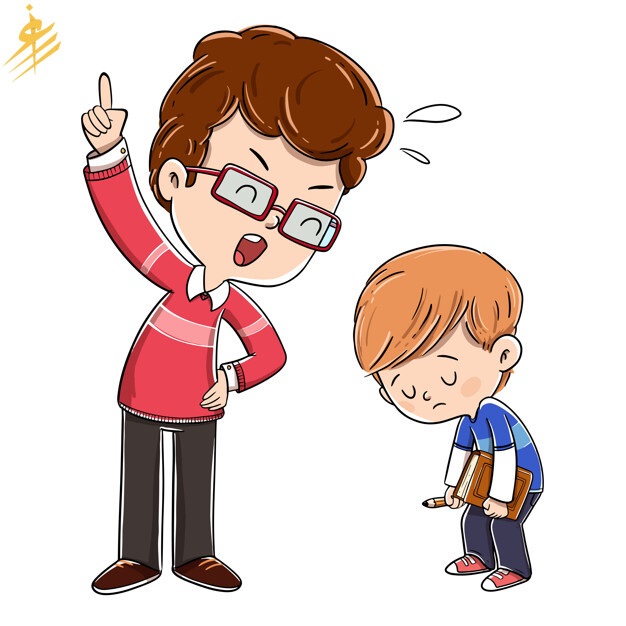Children’s behavior is usually related to their feelings. A child who misbehaves is frustrated. When the child feels positive he behaves correctly. Therefore, the book “How do you speak, so that the children listen to You?” – One of the best-selling books by international education experts Adele Faber and Elaine Mazlish – in its first chapter: How to Deal with Children’s Feelings.
Your comprehensive guide for proper dealing with your children’s feelings
Parents usually face the problem of not accepting their children’s feelings, such as when parents say to one of their children: “You are not tired”, “There is no reason for all this anxiety”, or “You are only saying this because you are tired”, etc.
How to build a good relationship with your children?
You can do a set of activities to express feelings to children, which help to identify children’s sincere feelings, from here you need to know:
The effect of rejecting and accepting your children’s feelings

The permanent and continuous rejection of children’s feelings can confuse them, anger them and teach them to ignore their feelings and not trust them. Not only that, but our conversation with them turns into a violent quarrel in which we ask our children not to trust their perceptions, but to rely on ours instead.
But when we put ourselves in the place of our children and parents assume that if one of them was a child and felt tired or bored, just wanted to broadcast his feelings to the most important people around him represented by his parents, then parents can familiarize themselves with what they told their children and what they experienced through Quiet dialogue passes naturally.
It does not require specific technology, but it requires parents to be aware of what they say to their children when listening to their feelings, such as saying: “So you feel tired even though you were sleeping during your nap”, “I feel cold, but for you it is hot”. Here we are entrenched inside us and within us. Our children that each of us is an independent person with different feelings, and none of us is right or wrong.
You can also check out: How to raise children in Islam.
What if we find what makes us angry in our children’s speech?

After learning to accept feelings, the dialogue remains calm and fruitful between parents and children. Even if one of the children addresses them with something that angers or worries them, they turn and revert to their old way of denying or rejecting the child’s feelings, as if the child says, for example:
- “I do not like my newborn brother”; So we find the usual response: “It is not like that. I know that you love him inside of you.” Then the responses take a variety when we go back to our old way. About the second child: “He loves you and clings to you whenever he sees you and smiles when you play with him.” Or we ask questions such as: “What did your brother do to you so that you do not love him?”
- And let us come back here to put ourselves in the place of our children, because in the event of feeling discomfort and pain, the last thing we want to hear is advice, or to be asked questions that put us in a position to defend ourselves, and what is worse than that, and what makes a person angrier, is to be told that you have no right to You feel it, and this is called rejecting, not accepting and denying his feelings.
- But make someone listen to your feelings, listen to them, recognize your inner pain and leave you the space to talk about what weighs you down; At that time distress and turmoil can ease, and a person becomes better able to overcome his feelings and problems. All of this is no different from what happens with children.
- Our children can help themselves if they find a listening ear and an empathetic response. But the language of empathy does not come naturally to us, it is not part of our mother tongue, we grow up with rejected feelings inside us that we have not been able to get rid of.
4 ways to help you deal properly with your children’s feelings
For our tongue to speak the language of new feelings, we must learn and practice their methods and present these methods in 4 steps that help in understanding children’s feelings:
1- Listen to them carefully
Paying no attention gives child a sense of frustration, because it is useless to try to communicate what you want to someone who does not fully listen to you. The full attention of the child gives him a sense of confidence and security, he can express himself easily to parents who give him a listening ear, just what he needs: sympathetic silence.
2- Show acknowledgment of their feelings with appropriate words such as: hmmm, yeah, ok
It is difficult for a child to think clearly or constructively if someone is questioning, blaming and advising him, so instead of asking questions or giving advice, parents can help the child by fully listening to what he says, with some simple words such as: mmm, yes, I understand and others. At that time, the child feels that what he tells and what he expresses is accepted and welcomed, that acceptance helps him to process his thoughts and feelings, he may reach appropriate solutions to his problem on his own.
3- Give names to their feelings
When a child is exposed to a certain trauma, such as losing his cat, for example, he expresses his sadness, so the parents think that the most appropriate response to that is the word: “Do not be sad, my little one.” This results in the child crying more, so the parents gradually deny the child’s feelings more while they think that they are They sympathize with him, so we find them saying: “Don’t cry, it’s just a cat.” The child’s wailing increases and he feels his feelings are underestimated, then the matter is exacerbated by saying: “Stop crying, we will buy you another cat”, so the child’s crying and wailing increase.
It is strange that when we insist on the child to get rid of a painful feeling; And if we treat him kindly, the child will grow furious, which parents fear will happen if they give the feeling a name. If the parents can name the feelings of the child, they may see a result different from what they thought before. When the child says: “My cat died,” we say, “Oh my God, it’s a shock,” and he says, “I lost my friend,” and we say: “It hurts to lose a friend.”. The truth is that the child who hears words expressing what he suffered and raised in himself feels more comfortable. Because some confessed their esoteric experience.
4- Give them what their imaginations wish for
When a child asks for something that he cannot get, the adults usually explain to them why they cannot get it through a logical explanation, such as asking for a plate of biscuits that his mother made, so the mother responds that the biscuit is over and they no longer have it, so the child insists on what he asks for, and the more the mother explains Deeper the rejection was more and deeper, even if she gave him an alternative to eat, he would meet it with categorical rejection.
But when the child asks for the biscuit he loves, the mother says: “I wish I had some of it at home, I know how much you love it and want it.” And the child replies: “Yes, I want it, I wish I had it now.” In front of you.” The child responds with an alternative solution to his problem, such as suggesting that he eat something different. As soon as the mother understands how eager the child is to get something, it becomes easier for him to bear not getting it.
Beware of the unquenchable desire for quick fixes!
- Perhaps one of the most difficult of the four skills is listening to the emotional impulse and then giving the feelings a name.
- It requires patience, focus, and the ability to look into the content of the child’s saying to realize what his feelings might be and then we can give him vocabulary that expresses his inner reality. And when our children have the right words for their experiences, they can help themselves.
- For the parents to train themselves in this, it is necessary to resist the temptation to fix the situation at the same moment and to completely avoid advising the children, even though it is very tempting,
- as if the child says: “Mom, I am hungry,” and the mother replies: “Then eat some food.” Instead, we can give ourselves the space to think and then give the same space to the child to realize what he wants based on his feelings.
- When we acknowledge children’s feelings, we do them a great service. We put them before their inner reality, and when that reality becomes clear to them, they gather their strength to start treating and correcting it.
What’s wrong with asking a child directly: Why do you feel this way?
Some children can say why they are afraid, angry, and unhappy, but for many of them, the question of why is added to their problem. In addition to their original distress, they now have to analyze the cause, realize and provide a reasonable explanation. Children often do not know why they feel this way,
Mostly, they resist talking about this topic because they fear that their stated reasons are not enough for adults, and they receive a response such as: “Why are you crying?”
Do children need parents’ approval of their feelings?
Some parents think that they should tell their children that they agree with their feelings, but children do not need someone to approve of their feelings because expressing approval may give them a feeling of satisfaction for a moment, but it may prevent the child from thinking about the things that are difficult in himself. What people of all ages need in a moment of distress is not the approval or disapproval of others, but someone who acknowledges what they are suffering.
And if we assume that the description of the child’s feelings was wrong, then there is nothing wrong with that because the child himself will correct that, and answer you with what he feels. It is daring for someone to claim that he knows the feelings of another person, but all we try to do is seek to understand the child’s feelings, and we may not always succeed. But our efforts are appreciated.
Acknowledging the children’s feelings does not mean accepting their mistakes against the parents or others. Therefore, the parents must restrict some actions, such as the child saying to the mother: “You are mean” or: “I hate you.” Here the mother can say: “I did not like what I heard.” From you, if you are angry, tell me in a way that makes me able to help you.” Another example is when the mother says to the child: “I know how angry you are with your brother. Tell him what you want from him with words, not with punches.”
Now that we have obtained 5 possible ways to save the child from his problems, we have an opportunity to tell our children that we are their safety and that our hearts are in their comfort in which they can reveal all their suffering, and we have another opportunity in which our children become our friends, so we shelter them as we sheltered them and they accept us as we accepted them.
What remains to be said, to achieve this is that our attitude should be compassionate and sincere when we listen to our children, for everything we speak if it does not come from sincerely from our hearts is considered by the child as false or manipulation and maneuvering, but when the words are wrapped in our true sympathetic feelings, they penetrate directly into the heart of the child.
You can prepare a distinctive children’s feelings card that helps them in a distinctive story to express the child’s feelings, make my dear your home a source of love, safety and honesty, as love does not spoil children, from here all aspects of your children’s feelings are clear.
Download jeras app from here, for more social, religious and educational articles.






